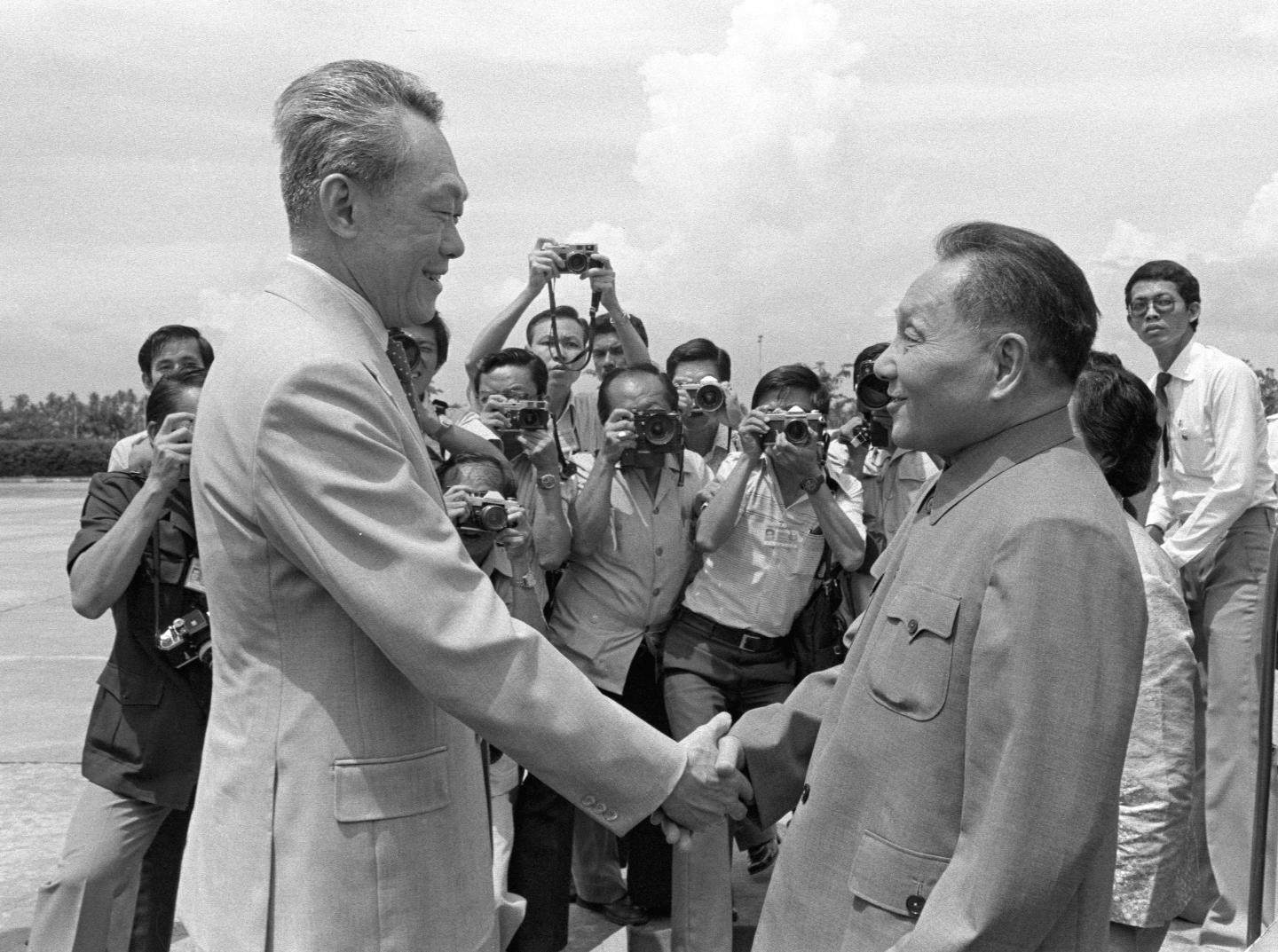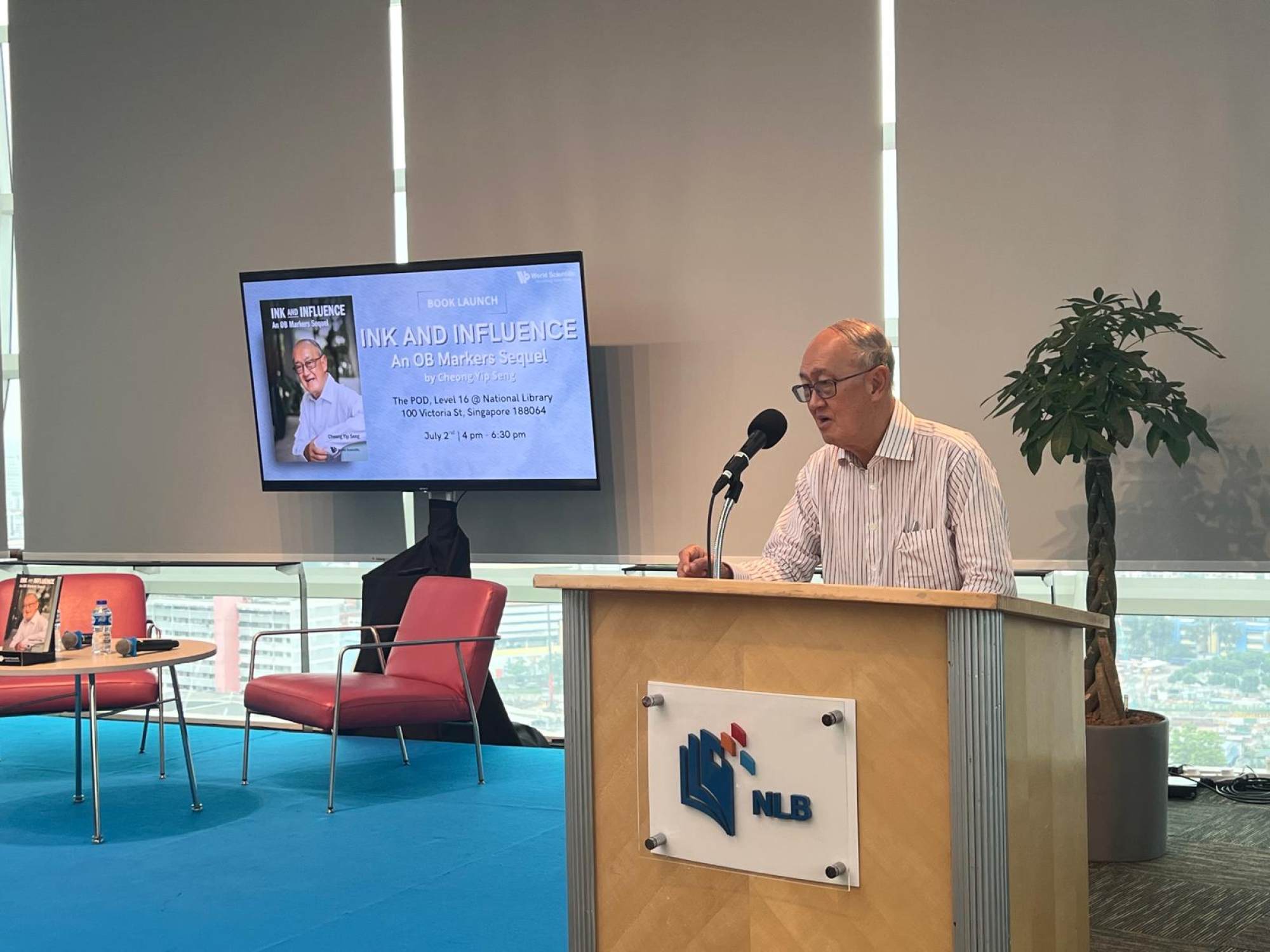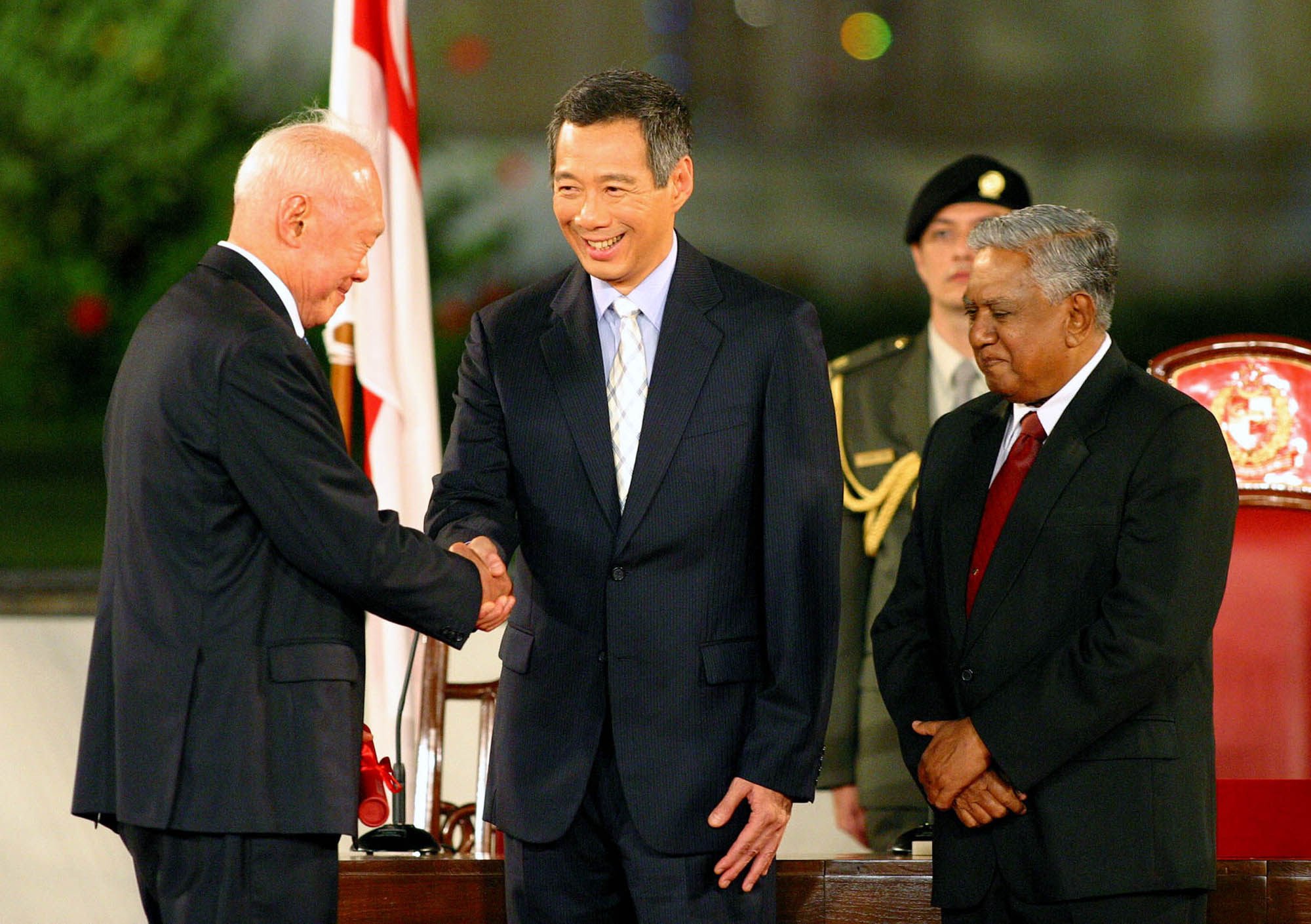New memoir reveals Lee Kuan Yew’s respectful strategy for China relations
Veteran newspaper editor Cheong Yip Seng’s new memoir outlines Lee’s diplomatic skill with China that earned him Beijing’s enduring trust

Singapore’s founding prime minister Lee Kuan Yew recognised early on that China demanded respect and equality in diplomacy – a posture that earned him Beijing’s enduring trust, according to veteran newspaper editor Cheong Yip Seng.
In his newly released memoir Ink and Influence: An OB Markers Sequel, Cheong reflects on Lee’s deft handling of China relations, drawn from personal experience covering his landmark 1976 visit to Beijing and later working closely with him as editor-in-chief of Singapore newspaper The Straits Times from 1987 to 2006.
Ink and Influence outlines Cheong’s four-decade-long career in journalism and his interactions with political leaders while at The Straits Times before he served as Singapore’s non-resident ambassador to Chile. Cheong then offers his thoughts on the way forward for the Singaporean media outlet.
Speaking to This Week in Asia during the book’s launch on Wednesday, Cheong said that although Singapore was more developed than China in those days, Lee held the Chinese in high regard.
“He wasn’t like the West, for example, who would demonise. He could see where are the strengths of the Chinese, where are the weaknesses, and be honest. But more importantly, [there was] a lot of mutual respect,” Cheong said.

Cheong, 82, recounted an anecdote published by the Chinese in 2018 when China honoured 10 foreigners with the China Reform Friendship medal to mark the 40th anniversary of the country’s opening up. The write-up for Lee, who was one of 10, recalled a 1978 visit by Deng Xiaoping to Singapore when Lee asked to have a spittoon and ashtray placed in the Istana next to Deng, after Lee recalled Deng smoked and he had seen a spittoon in the Great Hall of the People on his previous visit to China.
But throughout the evening Deng did not smoke or use the spittoon because he knew from news reports that Lee was sensitive to the smell of cigarettes.
“If you don’t have mutual respect, you can hardly have a proper constructive dialogue because one party is trying to be superior to the other. Equality is very important to the Chinese, for them that’s the better basis for negotiating, rather than having one party trying to overpower the other party, you won’t [get] win-win,” Cheong said.
Yet, Lee made sure the Chinese knew that Singapore had its own identity. In Ink and Influence, Cheong writes about the fanfare the Singaporean delegation received from the Chinese when they arrived in 1976 and how word got out that they were being greeted as “kinsmen”. Lee told the Chinese that Singaporeans were not kinsmen and ensured that the Singapore press corps never forgot this, said Cheong, who also served as editorial adviser to the Post from 2012 to 2020.
Cheong also recalled that Singapore’s former president S R Nathan, who was in the delegation, told him that their Chinese hosts gave Lee a copy of India’s China War by Neville Maxwell, a pro-China version of the war between India and China. According to Nathan, Lee put the book aside and said something to the effect of: “This is your version. There is another version of the war.”

While Lee’s diplomatic deftness was outlined in much of the book, Cheong said the purpose of OB Markers and the sequel was to explain the unique media model that Lee developed in Singapore.
Lee knew that to control the media, he needed to give the newsroom space so it could build its own credibility, and if it lost its credibility the media would be of no use to him, Cheong said.
“It’s a difficult balancing act that he performed, but I think he did it with great skill. He gave me a lot of space. I published many articles which are very critical of the government. He would get upset, but then it would pass,” Cheong said.
The 307-page Ink and Influence: An OB Markers Sequel comes over a decade after its prequel, which was met with controversy that ultimately resulted in Lee’s endorsement being removed in a subsequent print of the book.
Cheong addresses this in Ink and Influence, recalling that the chief of government communications demanded the removal of Lee’s endorsement after worrying that the insider account of Cheong’s interactions with the government would be used by the opposition to attack them.
“I was surprised by the reaction, because I knew that what I wrote in the book is not some state secret,” he said, stressing that his goal was to describe the Singapore media model for journalists to understand the industry they were in and the challenges it faced.
Cheong wrote that Lee’s daughter, Lee Wei Ling, called him after hearing about the controversy to tell him she read the book and found nothing wrong with it. She also reported the unhappiness to her father, who just shrugged his shoulders, she told Cheong.
With The Straits Times turning 180 this year, Cheong expressed concern that the paper was not serving Singapore’s interests and urged it to remodel itself as a global product that specialised in geopolitical coverage. In 2022, the paper began receiving government funding.
He noted in his book that Western media outlets could not fill the gap in the market for such a product, as many had political leanings.
“The biggest story in the world today is geopolitics, and it’s a field that will really engage enterprising journalists and if you have got an enterprising journalist who is able to make sense of what is happening around them and tell the story in a compelling way, they will always have an audience,” he said.
“We are a global city. We must have a product that will match the status that we have.”